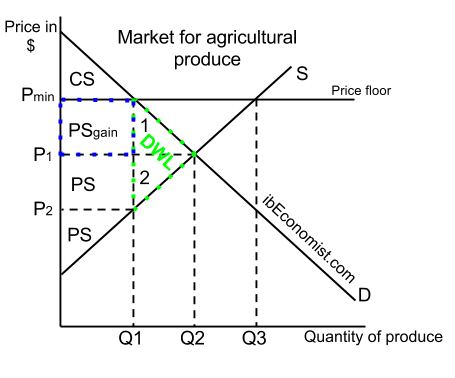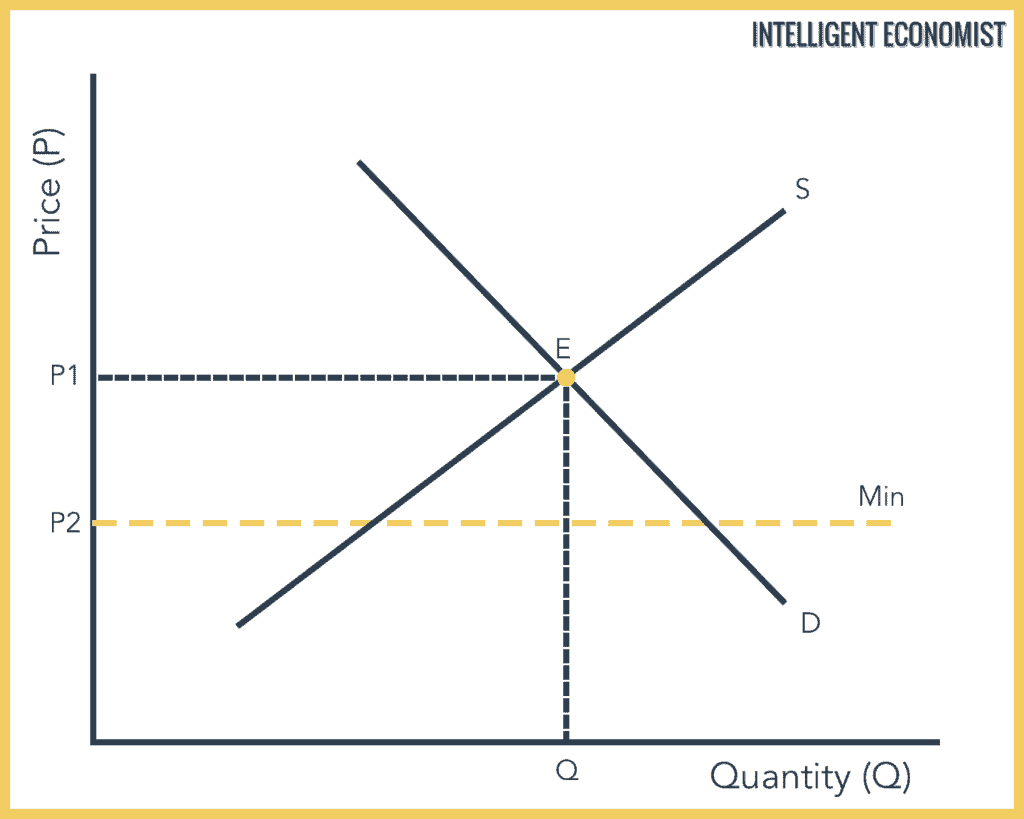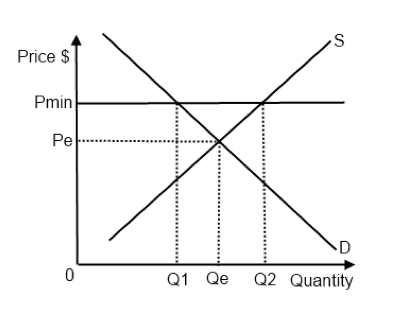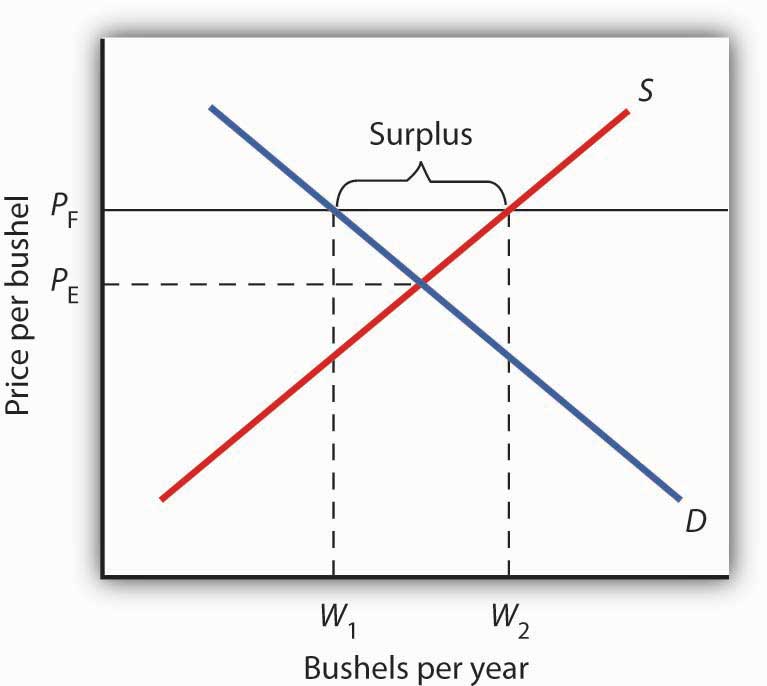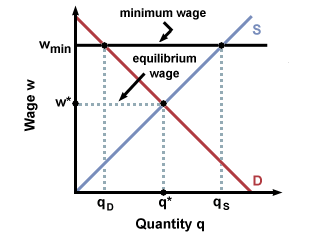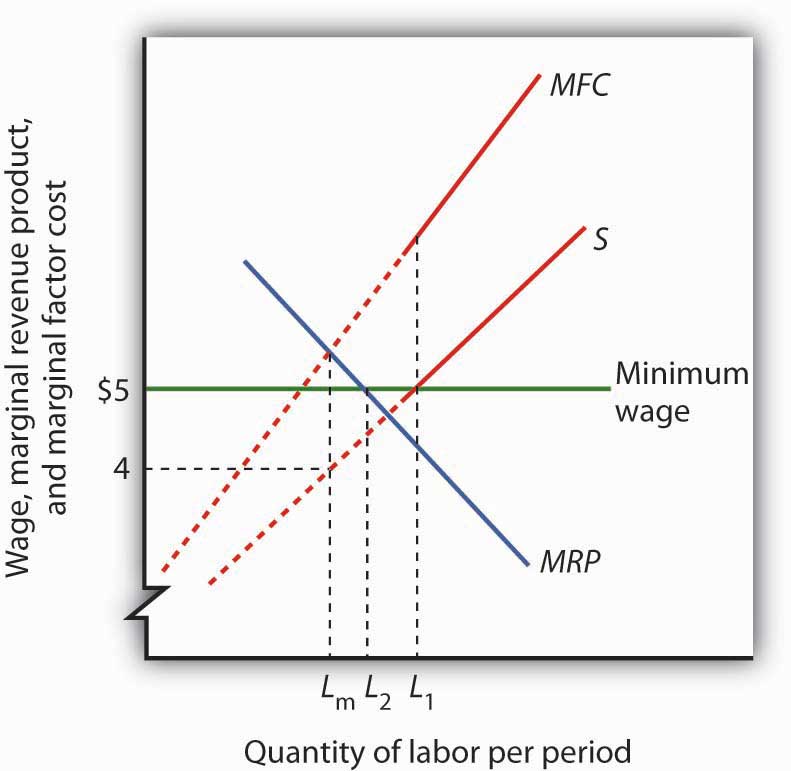Price Floor Definition Minimum Wage

A price floor or a minimum price is a regulatory tool used by the government.
Price floor definition minimum wage. The minimum wage is a legally mandated price floor on hourly wages below which non. By observation it has been found that lower price floors are ineffective. Without a minimum wage and other labor laws as is seen in countries that allow sweat shops globalized labor markets can be extremely inhumane offer. An example of a price floor is minimum wage laws where the government sets out the minimum hourly rate that can be paid for labour.
A price floor means that the price of a good or service cannot go lower than the regulated floor. When the minimum wage is set above the equilibrium market price for. But this is a control or limit on how low a price can be charged for any commodity. In this case the wage is the price of labour and employees are the suppliers of labor and the company is the consumer of employees labour.
For example the uk government set the price floor in the labor market for workers above the age of 25 at 7 83 per hour and for workers between the ages of 21 and 24 at 7 38 per hour. A price floor is the lowest legal price a commodity can be sold at. Price floors are used by the government to prevent prices from being too low. Price floor has been found to be of great importance in the labour wage market.
The most common price floor is the minimum wage the minimum price that can be payed for labor. A minimum wage law is the most common and easily recognizable example of a price floor. It is legal minimum price set by the government on particular goods and services in order to prevent producers from being paid very less price. A price floor is the other common government policy to manipulate supply and demand opposite from a price ceiling.
A minimum wage is the lowest wage per hour that a worker may be paid as mandated by federal law. A good example of how price floors can harm the very people who are supposed to be helped by undermining economic cooperation is the minimum wage. Price floor is a situation when the price charged is more than or less than the equilibrium price determined by market forces of demand and supply. More specifically it is defined as an intervention to raise market prices if the government feels the price is too low.
Price floors are also used often in agriculture to try to protect farmers. In this case since the new price is higher the producers benefit. Legislating a minimum wage is commonly seen as an effective way of giving raises to low wage workers. Like price ceiling price floor is also a measure of price control imposed by the government.
